You’ve walked past it a hundred times-a quiet doorway tucked between a kebab shop and a spice stall in Beyoğlu. No sign. No flashy lights. Just the faint smell of lemongrass and the sound of soft chanting from inside. You didn’t think much of it… until your friend whispered, "This is where I go when I need to reset my whole body." That’s the thing about Thai massage in Istanbul: it doesn’t shout. It heals.
Key Takeaways
- Thai massage in Istanbul combines acupressure, yoga-like stretches, and deep tissue work to relieve chronic pain and stress
- Unlike Swedish or deep tissue, it’s done fully clothed on a mat, making it more accessible and less intimidating
- Authentic Thai massage studios in Istanbul are run by therapists trained in Chiang Mai or Bangkok, not just "massagers" with a certificate
- Most places offer sessions between 60-120 minutes, with prices starting at 400 TL for a standard session
- It’s not just relaxation-it’s movement therapy. Many regulars say it fixed their lower back pain and improved their posture
Why Thai Massage Is Different (And Why It Works)
Let’s be real-there are a lot of massage places in Istanbul. Some are nice. Some are expensive. A few are… questionable. But Thai massage? It’s not just another rubdown. It’s a full-body reset.
Traditional Thai massage doesn’t use oil. You don’t lie on a table. You wear loose clothes and lie on a padded mat on the floor. The therapist uses their hands, thumbs, elbows, knees, and even feet to apply pressure along energy lines called sen lines. These are similar to acupuncture meridians but rooted in ancient Thai medicine, not Chinese.
And then comes the stretching. Think of it like yoga, but someone else is guiding your body through it. No need to be flexible. No pressure. The therapist adjusts to your range of motion. If you’re stiff? They work gently. If you’re loose? They go deeper.
This isn’t just about feeling good for an hour. Studies from Thailand’s Ministry of Public Health show that regular Thai massage improves circulation, reduces cortisol (the stress hormone), and increases joint mobility. People who get it weekly report fewer headaches, better sleep, and less muscle tension-especially in the neck and lower back.
What You’ll Feel After Your First Session
Imagine waking up the next morning and realizing your shoulders don’t feel like they’re holding up a suitcase full of bricks. That’s the magic.
Most first-timers say the same thing: "I didn’t know my body could feel this light." It’s not the kind of relief you get from a foam roller or a hot shower. It’s deeper. Like your muscles finally remembered how to relax.
One woman I know, a teacher from Kadıköy, started going after years of chronic neck pain from grading papers. She tried physiotherapy, acupuncture, even a chiropractor. Nothing stuck. Then she found a Thai massage studio in Üsküdar. After six sessions, she stopped taking painkillers. She says her posture changed so much that her students noticed.
And it’s not just for office workers. I’ve seen construction workers, dancers, yoga instructors, and even professional footballers come in. One guy who played for a local team told me he got Thai massage before every match because it loosened his hips better than any warm-up routine.
Where to Find Authentic Thai Massage in Istanbul
Not every place that says "Thai massage" actually does Thai massage. Some just slap on the name because it sounds exotic. Here’s how to tell the real ones from the rest:
- Look for therapists who mention training in Thailand-Chiang Mai or Bangkok are the gold standards
- Check if they use a wooden massage mat, not a table
- They should wear loose, comfortable clothing, not tight uniforms or swimsuits
- Ask if they use herbal compresses or warm oil. Authentic places often do
Some trusted spots in Istanbul:
- Thai House Istanbul (Beyoğlu) - Run by a Thai couple who trained in Bangkok. Their 90-minute session includes herbal compresses.
- Wat Pho Wellness (Kadıköy) - Named after the famous temple in Thailand. Therapists have 10+ years of experience.
- Lotus Thai Spa (Beşiktaş) - Offers private rooms and couples’ sessions. Popular with expats.
Pro tip: Avoid places that advertise "happy ending" or "sensual" with Thai massage. That’s not part of the tradition. Real Thai massage is about healing, not stimulation.
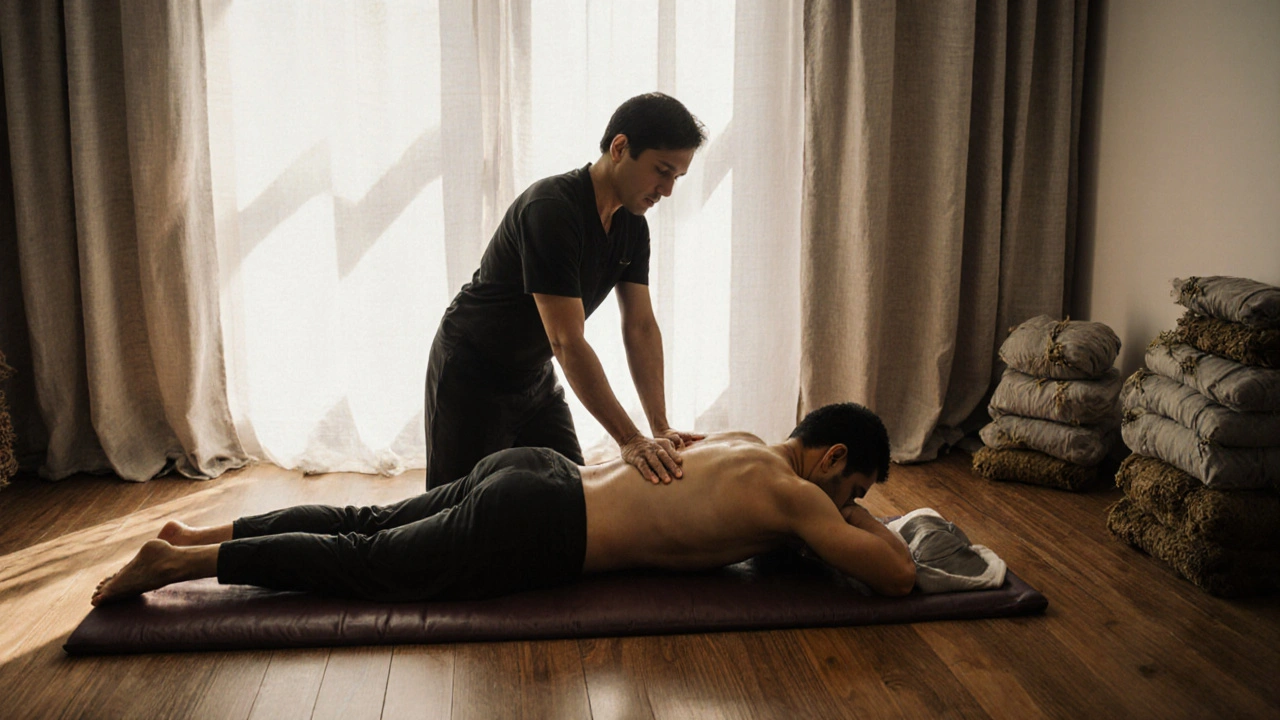
What to Expect During Your First Session
You walk in. No receptionist yells "Welcome!" You’re offered herbal tea. The room is dim, with incense and soft Thai music. The therapist asks if you have any injuries, tight spots, or areas you want to focus on.
Then you lie down on the mat, fully clothed. They start at your feet-slow, steady pressure. No sudden moves. You feel the warmth spreading up your legs. Then your back. Then your shoulders. They use their elbows to press into your lower back. It hurts… but in a good way. Like when you crack your neck and it finally pops.
Next comes the stretching. They gently pull your leg toward your chest. You think, "I can’t do that." But they hold you there just long enough to loosen the muscle. No forcing. No pain. Just steady, rhythmic movement.
At the end, you sit up slowly. You feel… different. Lighter. Calmer. Like you’ve been holding your breath for weeks and just exhaled.
How Much Does It Cost? What’s Fair?
Prices in Istanbul vary wildly. You’ll find places charging 200 TL for a 45-minute "Thai massage"-but that’s usually just a basic knead. Real Thai massage takes time.
Here’s what you should expect to pay in 2025:
- 60 minutes: 400-550 TL
- 90 minutes: 650-850 TL
- 120 minutes (with herbal compresses): 900-1,200 TL
Higher prices usually mean better-trained therapists, authentic techniques, and a calmer environment. Cheaper options? Often rushed, untrained, or using Western-style techniques with Thai branding.
Many studios offer package deals: buy 5 sessions, get the 6th free. If you’re serious about relief, this is the way to go.
Thai Massage vs. Swedish Massage in Istanbul
| Feature | Thai Massage | Swedish Massage |
|---|---|---|
| Setting | Mat on floor, fully clothed | Table, naked under towel |
| Technique | Acupressure, stretching, energy lines | Long strokes, kneading, light pressure |
| Oil Used | No oil (sometimes herbal compresses) | Yes, usually almond or lavender oil |
| Duration | 60-120 minutes recommended | 30-90 minutes |
| Best For | Chronic pain, stiffness, posture, energy flow | Relaxation, surface tension, stress relief |
| After Effects | Lighter, more mobile, energized | Relaxed, sleepy, calm |
Swedish massage is great if you want to zone out and drift off. Thai massage is better if you want to feel like your body has been recalibrated.
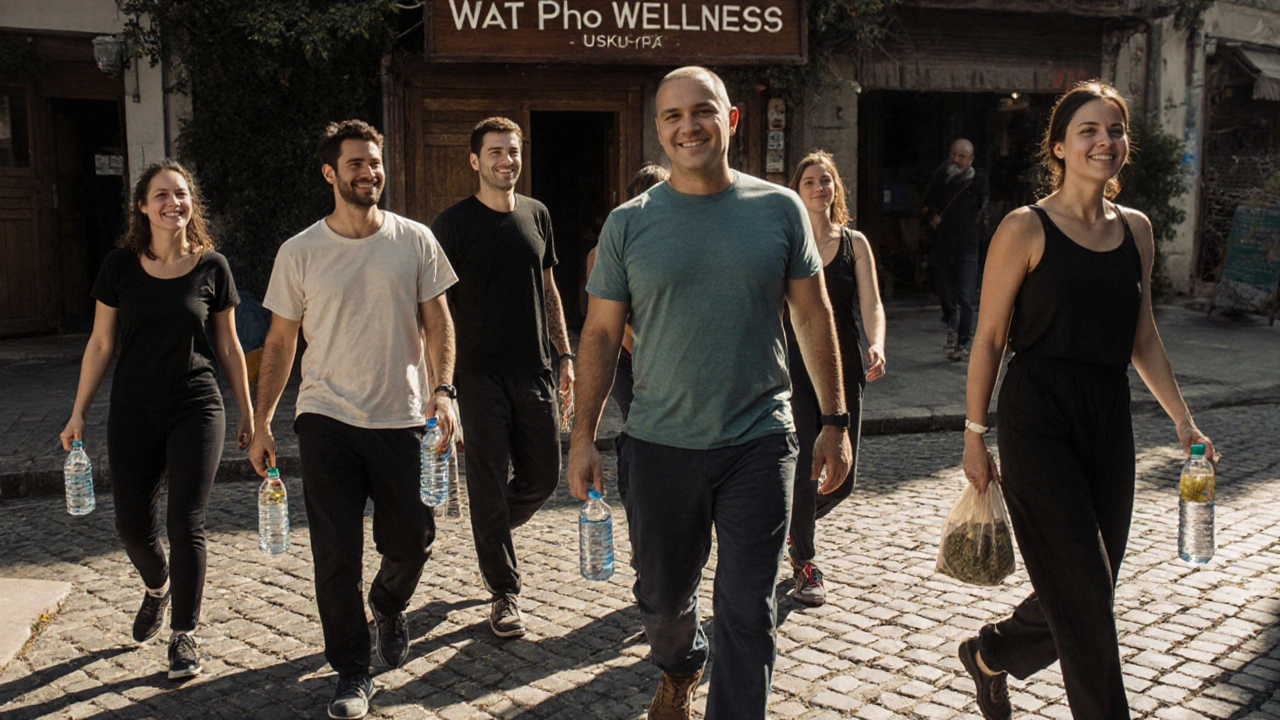
What to Avoid
Not every place is safe. Here’s what to watch out for:
- Places that don’t ask about injuries or medical conditions
- Therapists who use excessive force without checking in
- Locations that look like apartments with no signage or professionalism
- Staff who wear revealing clothing or use suggestive language
Real Thai massage is a healing art. It’s not about seduction. It’s about restoration. If something feels off, leave.
Frequently Asked Questions
Is Thai massage painful?
It shouldn’t be. Some pressure can feel intense-especially if you’re tight-but it should never feel sharp or unbearable. A good therapist will ask you to rate the pressure on a scale of 1-10. If it’s a 7 or above, speak up. Pain isn’t progress here.
Can I get Thai massage if I’m pregnant?
Yes, but only with a therapist trained in prenatal Thai massage. Avoid deep pressure on the abdomen and lower back. Many studios in Istanbul offer prenatal sessions-just ask when booking.
How often should I get Thai massage?
For general maintenance, once a month is enough. If you have chronic pain, tightness, or work at a desk all day, once a week for 4-6 weeks helps reset your body. Then you can drop to biweekly or monthly.
Do I need to be flexible to try Thai massage?
Not at all. In fact, most people who come in are the least flexible. The therapist adapts to you. You’re not expected to stretch yourself-you’re guided gently through movement. Think of it as yoga with a personal coach.
Is Thai massage only for physical pain?
No. Many people come for stress, anxiety, or burnout. The rhythmic pressure and stretching activate the parasympathetic nervous system-the part of your brain that says, "It’s safe to relax." People often leave feeling mentally clearer, not just physically looser.
Ready to Feel Different?
Thai massage isn’t a luxury. It’s a tool. One that’s been used for centuries to keep people moving, breathing, and living without pain. In a city as fast-paced as Istanbul-where traffic, noise, and stress never sleep-it’s the quietest kind of rebellion.
You don’t need to travel to Thailand to feel what it’s like. Just find a real studio, lie down, and let someone else take the weight off your shoulders-for once.
Book your session. Your body will thank you.
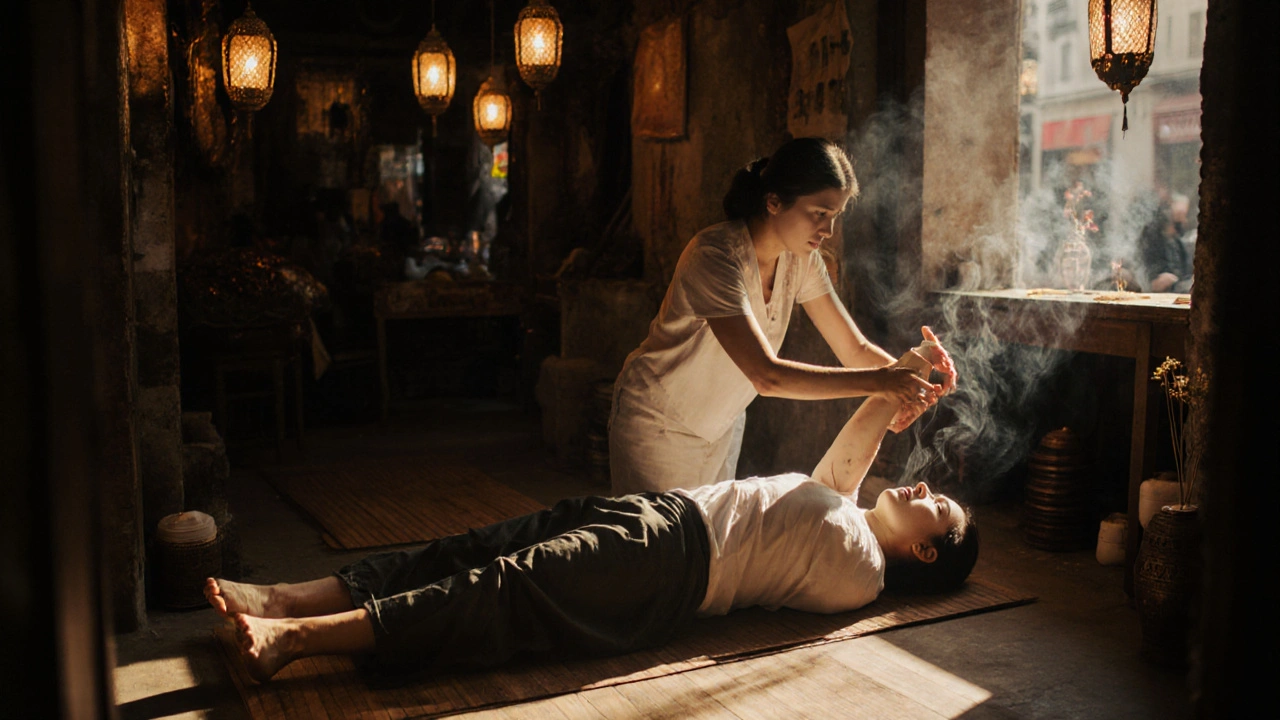
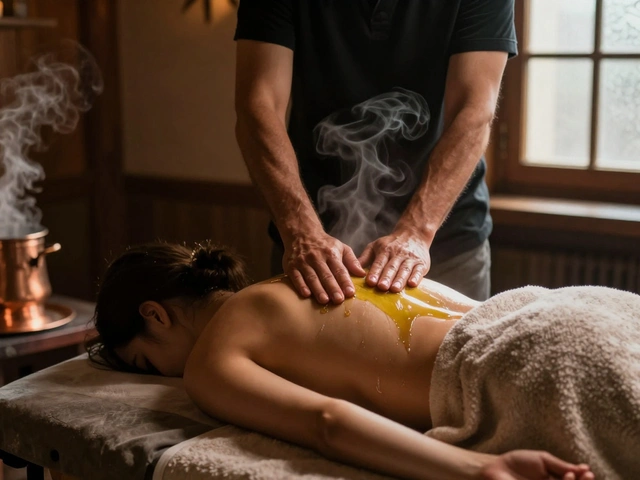
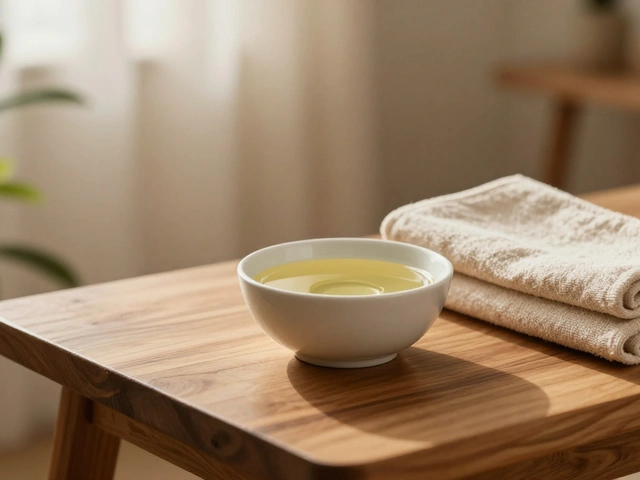

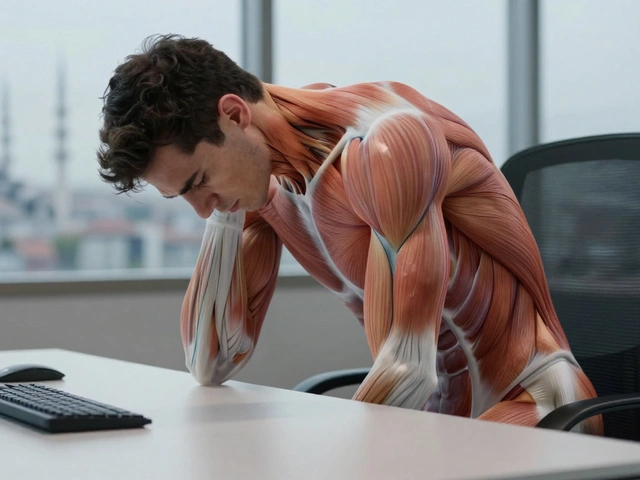
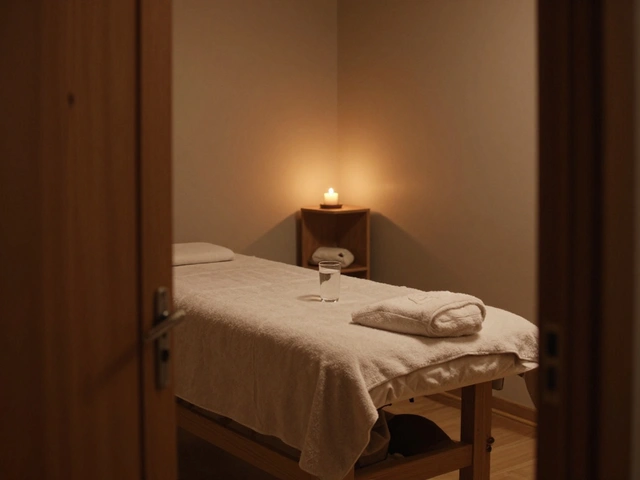
Let’s be real-Thai massage isn’t some mystical cure-all. It’s just a fancy way of saying ‘someone else is forcing your body into positions you haven’t held since high school PE.’ I’ve had it in Bangkok, Chiang Mai, and now here in Istanbul-and honestly, the only difference is the price tag. The technique? Identical. The ambiance? Often overpriced incense and bad ambient music. Don’t fall for the ‘ancient healing art’ marketing. It’s stretching + pressure. That’s it.
Ohhhhh, PLEASE-don’t tell me you’re one of those people who thinks ‘Thai massage’ is just ‘a nice stretch’?!!? It’s a sacred, 2,000-year-old spiritual discipline-rooted in Ayurveda-meets-Buddhist-meditation, not some Instagrammable ‘wellness’ trend!! You walk in like it’s a Starbucks latte, and you leave… lighter?!!? No. You leave… TRANSFORMED. I cried after my first session. Not because it hurt-because my soul finally remembered how to breathe. And if you think it’s ‘just stretching’-you’ve never felt the sen lines awaken. You’ve never felt the chi. You’ve never been… reborn.
Ugh. Another ‘Thai massage in Istanbul’ post. 😒 Why do foreigners always act like India doesn’t have yoga, acupressure, and Ayurveda? We’ve been doing this for 5,000 years. Now suddenly it’s ‘authentic’ when a Thai guy does it in Beyoğlu? 🤦♀️ And why are we pretending this isn’t just glorified physio? I’ve had real Indian Panchakarma-now THAT’S healing. This is just a tourist trap with better lighting. 🤷♀️ #StopCulturalAppropriation #IndiaFirst
I came here last year after a car accident-lower back screaming, couldn’t sleep, couldn’t sit. Tried everything. PT, chiropractor, acupuncture, even a $200 ‘energy healer’ who just held my hands and hummed. Then I found Thai House in Beyoğlu. The therapist, Nong, didn’t even speak English. But she knew my body. She didn’t ask for my pain scale-she just… felt it. After three sessions, I could tie my shoes without groaning. I didn’t know my body could hold that much tension. I still go once a month. It’s not a luxury. It’s medicine.
As someone who’s trained in both Thai massage and somatic movement therapy, let me cut through the noise: this isn’t about ‘exoticism’ or ‘authenticity’-it’s about neurophysiological modulation. The rhythmic compression of sen lines stimulates the parasympathetic nervous system more effectively than any pharmacological intervention for chronic tension. The fact that it’s clothed? Genius. Removes the vulnerability barrier that kills compliance in Western modalities. And yes-herbal compresses? That’s thermotherapy + phytochemical delivery. It’s not magic. It’s biomechanics + tradition. Also-don’t trust places without wooden mats. That’s a red flag. No mat = no proper grounding = no energy flow. Period.
Y’all are overthinking this. 😌 I’m a single mom of three, work 60 hours a week, and I go to Wat Pho every Sunday. I don’t care if it’s ‘authentic’ or ‘ancient’-I care that I can pick up my kid without my spine screaming. I go in stressed, I leave calm. That’s it. No philosophy. No nationalism. Just a woman who finally found peace. And if you’re judging someone for needing that? You’ve never held a crying child at 3 a.m. while your back feels like it’s breaking. 💖
Okay but like… why is everyone acting like this is a revelation? I’ve been getting Thai massages since 2012. It’s just… massage. I’ve had better in Lisbon. And honestly? The whole ‘no oil’ thing? Kinda weird. Like, I get it, it’s traditional-but why not just use a little lavender? It’s not like we’re in a monastery. Also, 1200 TL? For a massage? In Istanbul? That’s a monthly phone bill. I’m not paying that for someone to pull my leg. 🤷♀️
What if the real magic isn’t in the technique, but in the ritual? The silence. The absence of chatter. The way the therapist doesn’t ask for your credit card until after you’ve been still for ten minutes. In a world where everything is optimized, quantified, monetized-this is one of the last places you’re allowed to be passive. To receive. To not perform. To not explain. To just… be held. Not by a person. But by a practice. A tradition that doesn’t care if you’re rich, or broken, or woke, or tired. It just… works. And maybe that’s the real secret. Not the sen lines. Not the herbs. But the permission to stop trying.
How quaint. Another ‘hidden gem’ in Istanbul. As if the city hasn’t been commodifying ‘exotic healing’ since the 1980s. I once had a ‘Thai massage’ in a basement near Taksim where the therapist was clearly just a university student who watched three YouTube videos. The incense smelled like cheap candle wax. The ‘chanting’ was a Spotify playlist. I paid 700 TL for a 60-minute pity party. I’m not saying it doesn’t work-I’m saying the market has turned spirituality into a subscription service. And we’re all just buying the branding.
Went last week. 90 minutes. 750 TL. Best money I’ve spent all year.